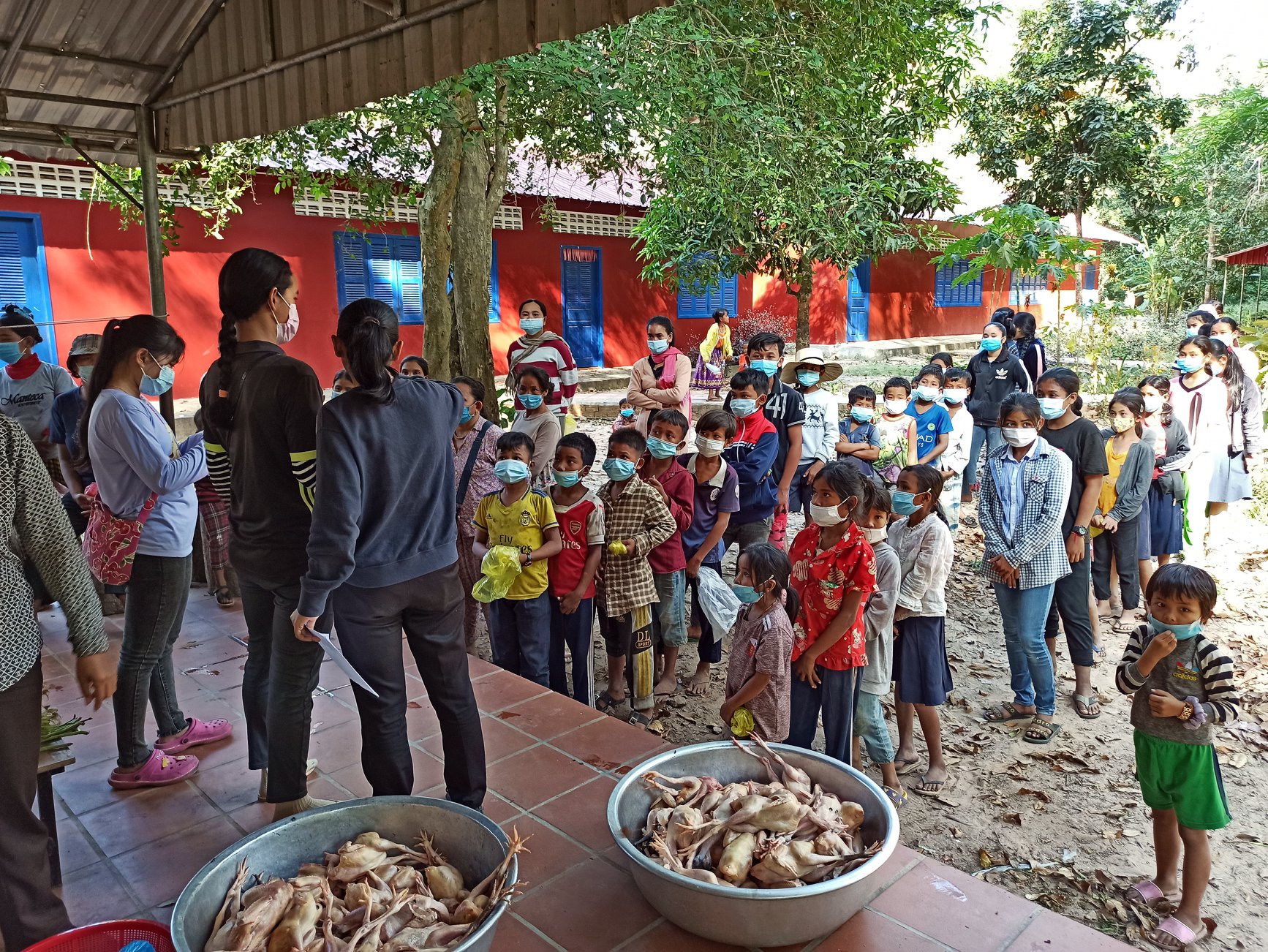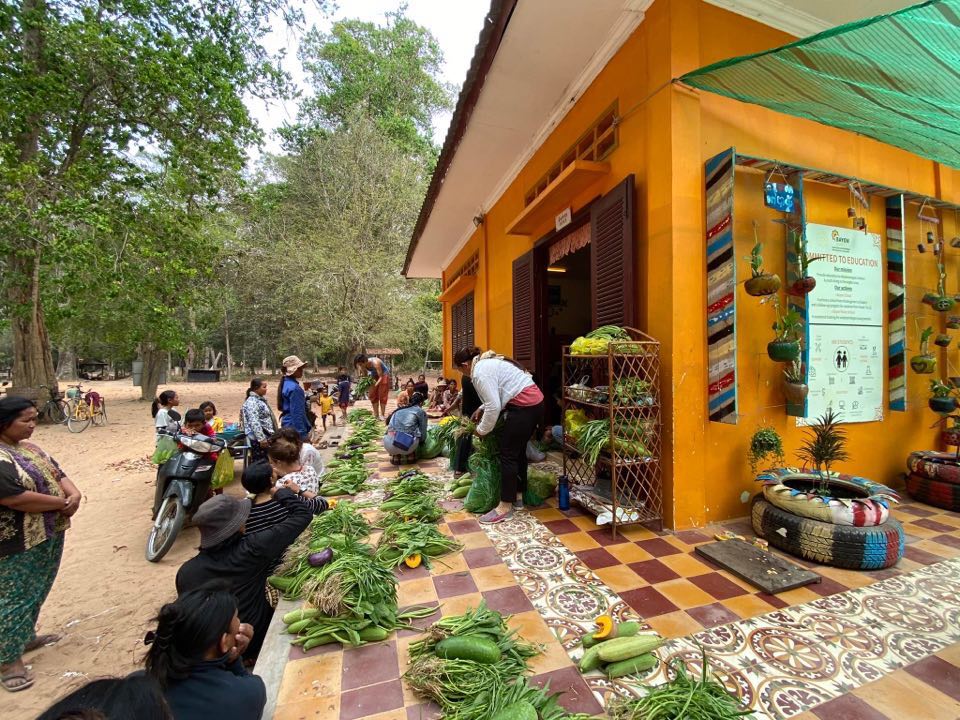In March 2020, the COVID outbreak was spreading rapidly around the world and, one by one, countries were closing their borders in an attempt to stop the inevitable pandemic. Cambodia was no exception. On March 9, 2020, all schools in Cambodia closed and the country completely banned tourists from entering. The last foreigners in the country left the Kingdom and the country’s economy was severely affected.
Since September 2020, the situation in Cambodia had returned to a semblance of “normality”, but today the country has, once again, been hit hard by the COVID-19 outbreak. On March 21 2021, we had to close the doors of the primary school, the vocational training in Bakery/Pastry and now the one in Agroecology yet again. Our students were compelled to return home. Faced with the resurgence of COVID cases, measures have been tightened and the town of Siem Reap experienced its first two-week lockdown before regaining freedom, tempered by sanitary measures (curfew, social distancing…). However, schools are still waiting for a potential reopening.
While these initiatives are helping to curb the spread of the pandemic, they are also severely impacting the lives of our families and students. Usually fed twice a day at Elodie’s Canteen, the children rarely receive the same food rations at home, especially since the country has been completely emptied of tourists and a large number of Cambodians have lost their jobs for over a year now. An insidious consequence of this new interruption is the economic burden it represents for families who have already lost their main source of income.

To mitigate the effects of the crisis on our beneficiaries, we had set up weekly food distributions as early as March 2020. The Bayon mobilized resources in order to buy back part of the vegetable production cultivated by the farms we support in the framework of the green farming program, in order to give them back, free of charge, each week to the families of our beneficiaries. This initiative amounted to no less than 300 kg of vegetables per week and allowed these hard-working women to continue generating an income, whilst providing a variety of food to the beneficiaries’ families. For those who had seen their living conditions deteriorate severely because of the crisis, bi-monthly distributions of rice were also carried out, the quantity of which was determined based on the number of people in the household.

Today, faced with a situation that persists and worsens every day, this assistance is no longer sufficient to ensure a decent diet for most of the families we support. This is why we have decided to reinforce the distribution of vegetables, to extend the distribution of rice to all our beneficiaries and to offer food supplements in the form of emergency meal baskets. At a minimum, this initiative will be maintained until the reopening of schools in order to relieve the families, who must now take charge of these additional meals. It will also ensure that children always have the resources they need for their proper development.
Because healthy eating and family support are key factors in a child’s success in school, we will always strive to provide them with the means to feed themselves and live with dignity.


